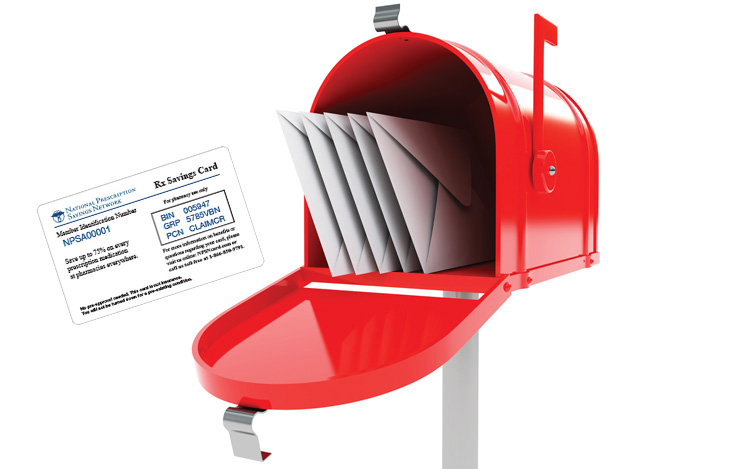The catch behind a ‘free’ pharmacy discount card
If you have a mailbox, chances are you’ve received a Pharmacy Discount Card in the mail. The offer sounds great: up to 75 percent off your medications, no paperwork, it’s accepted all over, and it never expires. Don’t forget the kicker—it costs absolutely nothing. Hopefully by now your “too good to be true” warning alarm is going off.
Technically, Pharmacy Discount Cards are legitimate, according to the Better Business Bureau. Spokespeople from both the Florida Department of Health in Polk County and the Florida Department of Health maintain these cards aren’t anywhere on the DOH’s radar. However, the cards do have a few catches that make them too good to be true. First, they utilize tactics that aren’t wholly on the level. Case in point: cards bearing the names The Healthcare Alliance, RxRelief, Help Rx, United States Prescription Discounts, and National Prescription Savings Network are all aliases for the same company, ScriptRelief. Furthermore, the company has employed deceptive marketing practices, such as utilizing certain fonts and colors on the cards—even a Washington D.C. return address—to give the impression that they were, in fact, from the government as part of the Affordable Care Act— which they are not.
If all the misleading practices weren’t enough to give you pause, consider this: the 75 percent savings promised is a gross exaggeration. Pharmacies set their own cash prices for medications if you have no health insurance or a particular drug isn’t covered. While the cards can’t compete with health insurance copayments, they claim to offer significantly lower cash prices for prescription drugs than those offered by the pharmacy itself, like a reusable coupon. “Not true,” warns a privately-owned pharmacy in Lakeland, “75 percent savings? No way.” The difference in cost between paying the pharmacy’s cash price and paying the card’s is often measured in cents, not dollars. Sometimes, the price you’ll pay using the card is even higher than the pharmacy’s.
To be fair, call the 800 number on the cards and the recorded message maintains they won’t always offer a lower price, and you might be thinking that some savings are better than none. However, you’re actually paying with something else: your private information. Using the card gives the company a whole slew of personal information about you. While they claim that they won’t sell or rent your information, the wording of ScriptRelief’s privacy policy maintains they will use your information to send you “special offers from us and other business partners that we think you will find valuable.” Translation: they’ll send you junk mail, sales calls, and spam. It’s a cautionary reminder that you can’t trust everything you receive in the mail. Bottom line: certain Pharmacy Discount Cards could save you some money, but it’s not as high as they claim, nor does the discount come to you completely free. If you receive a “free” discount card in the mail, be sure to do your research before you use it.
CREDITS
story by ERIKA ALDRICH
